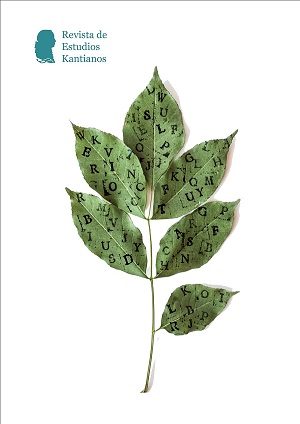Pensar como operación – Acerca de los presupuestos e implicaciones de la lógica formal moderna
DOI:
https://doi.org/10.7203/REK.2.1.10059 Abstract
Abstract
Actualmente se considera a la lógica formal incuestionablemente como la lógica. ¿Quién se atrevería a cuestionar esto sin perder el juicio? Queremos en lo que sigue, emprender con gusto esto. La tesis afirma que, en la lógica formal, el pensar se concibe de modo técnico-práctico, que también en ello reside – bien visto - la necesidad relativa de su punto de vista. Pero una absolutización de esta auto-interpretación de la forma lógica tiene – uno tiene que decirlo drásticamente –, en definitiva, consecuencias mortales para el entorno del mundo humano. Queremos, por eso, aproximarnos al tema lógica formal de un modo completamente no-técnico, a saber, de un modo filosófico, es decir, queremos cuestionarla en sus presupuestos e implicaciones. Pues también la lógica formal tiene sus presupuestos, que quedan a sus espaldas. En un primer paso, actualizaremos las determinaciones más fundamentales en la formulación de la lógica formal. En un segundo paso, queremos profundizar esto con vistas al concepto lógico-formal del “concepto”. Los problemas sistemáticos que trataremos con esto son precisamente aquellos cuya solución hará necesario el paso a la lógica transcendental en el sentido de Kant.
 Downloads
Downloads
Downloads
Published
How to Cite
-
Abstract849
-
PDF (Español)311
Issue
Section
License
![]()
The authors who publish in this journal agree with the following terms:
- The authors retain their copyright and guarantee to the journal the right to be the first to publish the work and to license it under a Creative Commons Attribution License that allows others to share the work with an acknowledgement of its authorship and the initial publication in this journal.
- Authors may separately establish additional agreements for non-exclusive distribution of the version of the work published in the journal (for example, placing it in an institutional repository or publishing it in a book), with acknowledgement of its initial publication in this journal.
- Authors are allowed and encouraged to disseminate their work electronically (e.g., in institutional repositories or on their own website) before and during the submission process, as this can lead to productive exchanges as well as earlier and greater citation of published work (see The Effect of Open Access).








